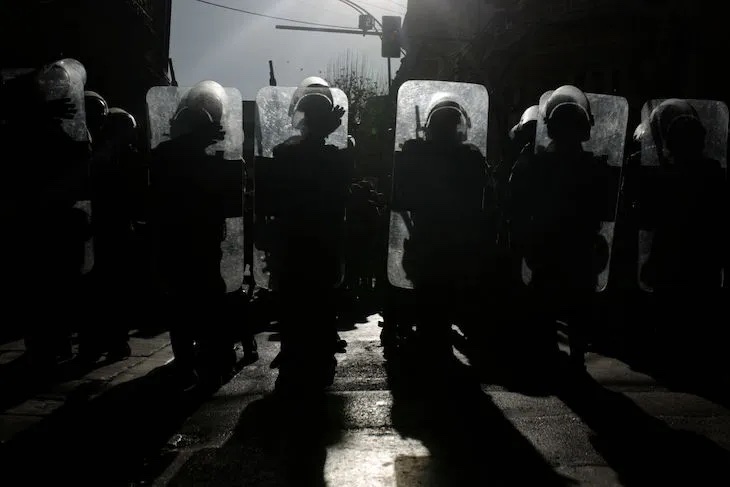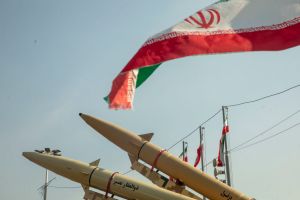Latin America has long been the traditional home of the military coup — or “golpe” in Spanish — so the sight yesterday of soldiers rushing the presidential palace in La Paz, capital of Bolivia, and ramming its doors open with an armored vehicle, may not have seemed surprising.
After hours of confusion, the leader of the coup, General Juan Jose Zuniga, was led away under arrest, with his attempt to “restructure democracy” having clearly failed. Earlier, crowds had taken to the streets in response to presidential appeals to defend democracy and oppose the coup.
The abortive coup attempt was aimed at toppling Bolivia’s left-wing president, Luis Arce. It follows years of increasingly bitter confrontation between the Bolivian masses who elected Arce, and the army and managerial elite who resent his socialist policies.
Bolivia, a landlocked state in the center of the continent, has had more than its share of coups and military dictatorships since the Cuban revolutionary Che Guevara was killed there trying to ignite a pan-American guerrilla uprising in 1967. For decades, the country’s brutal security forces were advised by Klaus Barbie, a fugitive Nazi war criminal, who was eventually extradited for trial in France in the 1980s.
But what was different to previous coups this time was the universal condemnation of the latest “golpe” by all other Latin American states, whether of the left or the right. So perhaps the era of the coup is finally past, even in the continent most associated with it. Latin American coups went out of fashion in the 1980s after the fall of the military dictatorships in Argentina and Chile, responsible for the torture and murder of thousands of their citizens. Since then, almost all Latin American states have had the unfamiliar experience of being ruled by democratically elected presidents without the intervention of their armies.
Bolivia is a country with a higher than average population of indigenous Indians, many working as impoverished peasants on the land. Power has traditionally been held by a Hispanic minority elite in the cities. That all changed in 2005 when the left-wing union leader Evo Morales became the country’s first elected indigenous president.
From the start of his term, Morales clashed with the elite over his leftist domestic policies, while abroad he opposed “US imperialism” and built alliances with like-minded leftist regimes in Cuba and Venezuela. At the same time he became increasingly authoritarian and unpopular after trying to scrap constitutional limits on his presidential terms. Although he was re-elected, the elite’s patience with Morales’ Marxism finally ran out in 2019 when a coup forced him to resign and go into exile in Mexico.
His position had been weakened by a split within his ruling Socialist movement, when he opposed his more moderate finance minister Luis Arce, the current president. Arce, a British-educated graduate of Warwick University, had presided over the economic successes of the Morales presidency, promoting Bolivian industries and curbing multi-national corporations in the country. The discovery in Bolivia in 2018 of large deposits of lithium, vital in the production of mobiles, laptops and electric vehicles, made control of the country’s economy even more contentious.
Arce was elected president amidst popular acclaim in 2020, but meanwhile Morales had returned to the country. Yesterday’s coup attempt was prompted by the elite’s fears that the former president was planning a return to power. It’s abject failure shows that, in the twenty-first century, Latin American democracy may be stronger than the plans of ambitious generals to rule through the barrel of a gun.
This article was originally published on The Spectator’s UK website.


























Leave a Reply